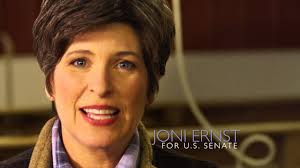Once casinos move to fill a vacuum, it’s difficult to push them back. But that’s what Pennsylvania state Rep. Will Talman (R) is trying to do. He’s proposing a bill to close  Keystone State casinos nightly between 2 a.m. and 6 a.m. As justification, he cites existing laws which require non-casino bars to close between those hours. Casino bars can stay open — they just can’t serve alcohol during that period. Considering that, last year, the Legislative Budget & Finance Committee recommended 24-hour liquor sales in Pennsylvania casinos, I’d give the monied interests the upper hand over Talman. The latter is certainly shooting dice with the state budget by suggesting that casinos close down for one-sixth of their operating hours. Ideology would seem to have gotten the upper hand with him over fiscal sense.
Keystone State casinos nightly between 2 a.m. and 6 a.m. As justification, he cites existing laws which require non-casino bars to close between those hours. Casino bars can stay open — they just can’t serve alcohol during that period. Considering that, last year, the Legislative Budget & Finance Committee recommended 24-hour liquor sales in Pennsylvania casinos, I’d give the monied interests the upper hand over Talman. The latter is certainly shooting dice with the state budget by suggesting that casinos close down for one-sixth of their operating hours. Ideology would seem to have gotten the upper hand with him over fiscal sense.
* Speaking of ideology, 11th-hour political pressure on Wisconsin Gov. Scott Walker (R) may have spelled doom for the Menominee Nation‘s casino hopes. Walker will be campaigning for the presidency soon in Iowa, where 600 prominent Republicans, including Sen. Joni Ernst, and Republican National Committee members Steve Scheffler  and Tamara Scott sent a blunt message: “As you are contemplating a presidential bid, I sincerely hope you will consider a ‘No Expanding Gaming’ policy’.” Family Leader CEO Bob Vander Plaats piled on. “The increased societal problems of divorce, bankruptcy, debt, depression and suicide,” he pontificated, “and the additional cost to local governments to handle these problems and the crimes associated with gambling, far outweigh any perceived advantages that may be provided by expanded gambling.”
and Tamara Scott sent a blunt message: “As you are contemplating a presidential bid, I sincerely hope you will consider a ‘No Expanding Gaming’ policy’.” Family Leader CEO Bob Vander Plaats piled on. “The increased societal problems of divorce, bankruptcy, debt, depression and suicide,” he pontificated, “and the additional cost to local governments to handle these problems and the crimes associated with gambling, far outweigh any perceived advantages that may be provided by expanded gambling.”
As written, the Menominee compact was a highly problematic document, a magnet for litigation. But who’s to say grumblings from Iowa conservatives didn’t ultimately force Walker’s hand?
* Ever ambivalent, Hawaii is toying with legalized gambling again. HB91 proposes to permit slot machines at the Aloha State’s airports. In order to play, you’d not only have to be 21 or older but your ticket would have to take you out of the country within 12 hours. The
 slots couldn’t be advertised within the state. Said sponsor Rep. Cindy Evans (D), “This will be an opportunity to get more of the tourists’ dollars before they leave our state. Our airports need modernization and repair. It is time we think out of the box to find a new revenue source.”
slots couldn’t be advertised within the state. Said sponsor Rep. Cindy Evans (D), “This will be an opportunity to get more of the tourists’ dollars before they leave our state. Our airports need modernization and repair. It is time we think out of the box to find a new revenue source.”
Well, I wouldn’t call it a radical departure. Hawaiian lawmakers have proposed legalized gambling in the recent past, including a one-year “test” casino. What’s most radical here is the proposed tax rate, a confiscatory 86%. No state in America even comes close to that. Are there slot operators who’d vie for concessions that would only leave them with pennies on the dollar? I’ll bet the answer is yes.
* The casino-industry recession in Macao is putting the squeeze on junket operators. There are 16% fewer now than a year ago. That still leaves a lot of junketeers — 183 — out there. With VIP revenue down 11% in 2014, a market correction like this was inevitable. Even some of the surviving companies are pulling in their horns. For example, Gold Moon Group is ceasing operations at Sands Cotai Central. Like Gold Moon, David Group is accompanying its Macao cutback with plans to expand elsewhere in the Pacific region.

